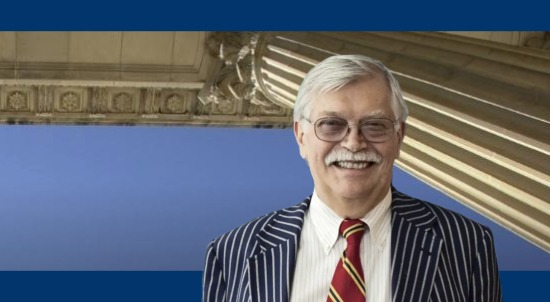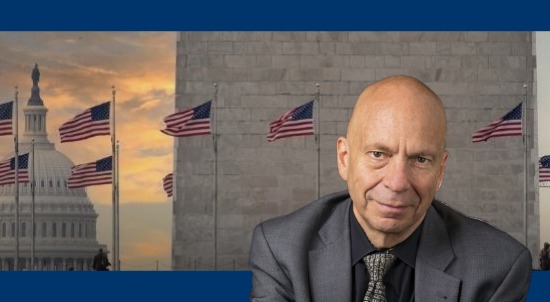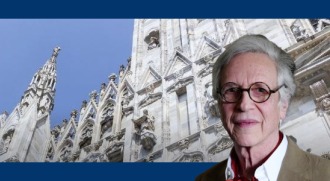
Religions and Ecology: Restoring the Earth Community Specialization
Published: Winter 2022
Description
Why do religions matter when we talk about environmental problems and solutions?
The environmental crisis is not simply a political, economic, or technological problem; it is a moral and spiritual call to long-term change.
Religious narratives resonate with large numbers of people —85% of the world’s population belong to religious communities.
Religions have educational institutions around the world that can inspire people for an ecologically just future.
Religious structures and sacred spaces provide a symbolic and practical context for aligning humans with nature.
Religions have financial assets that can be used for transformative change, such as divestment and reinvestment.
To whom will these courses appeal?
Lifelong learners curious to know more about world religions and ecology
Environmental professionals eager to deepen the discourse of environmental protection and conservation
Those working with non-profit organizations and NGOs on issues of ecological justice, especially where minority communities are adversely affected
Those involved in education -- College and high school students looking for a broader view of religion and spirituality, teachers developing curriculum,
Those involved in the world’s religions -- Religious leaders and laity who want to know how they can contribute to interreligious dialogue on environmental issues; Religious communities interested in building engaging projects, such as the restoration of local bioregions.
The Courses
1. Introduction to Religions and Ecology
Broad introduction to the study of religion and history of ecology
Highlights moral force of religions and ecology
Prepares learners for the other courses
2. Indigenous Religions and Ecology
Africa, Asia, Americas, Pacific Regions
3. South Asian Religions and Ecology
Hinduism, Jainism, Buddhism, Sikhism, Baha’i Faith
4. East Asian Religions and Ecology
Confucianism, Daoism, Buddhism, Shinto, Korean Shamanism
5. Western Religions and Ecology
Judaism, Christianity, Islam
Course Takeaways
- What ecojustice actions are taking place on in my own religion?
- What can I learn from examples of faith-based action?
- Religions can be active partners in finding eco-solutions. The partnership joins the moral force of faith into eco and climate emergencies.
- What voices might I learn from in pursuing ecological conservation?
- How is ecojustice contributing to solutions social problems?
- What environmental activities are going on in my own religious tradition?
- What opportunities are there for interreligious engagement?
Meet the Instructors
 Mary Evelyn Tucker: Mary Evelyn Tucker is a Senior Lecturer and Research Scholar at Yale University where she has appointments in the School of Forestry and Environmental Studies as well as the Divinity School and the Department of Religious Studies. She teaches in the joint MA program in religion and ecology and directs the Forum on Religion and Ecology at Yale with her husband, John Grim. Her special area of study is Asian religions. She received her Ph.D. from Columbia University in Japanese Confucianism. Since 1997 she has been a Research Associate at the Reischauer Institute of Japanese Studies at Harvard. Her Confucian publications include: Moral and Spiritual Cultivation in Japanese Neo-Confucianism (SUNY, 1989) and The Philosophy of Qi (Columbia University Press, 2007). With Tu Weiming she edited two volumes on Confucian Spirituality (Crossroad, 2003, 2004). Her concern for the growing environmental crisis, especially in Asia, led her to organize with John Grim a series of ten conferences on World Religions and Ecology at the Center for the Study of World Religions at Harvard (1995-1998). Together they are series editors for the ten volumes from the conferences distributed by Harvard University Press. In this series she co-edited Buddhism and Ecology (Harvard, 1997), Confucianism and Ecology (Harvard, 1998), and Hinduism and Ecology (Harvard, 2000). After the conference series she and Grim founded the Forum on Religion and Ecology at a culminating conference at the United Nations in 1998. They now direct the Forum at Yale where they also teach religion and ecology. To help shape this new interdisciplinary field they edited Worldviews and Ecology (Orbis, 1994) and a Daedalus volume titled Religion and Ecology: Can the Climate Change? (2001). Tucker also wrote: Worldly Wonder: Religions Enter Their Ecological Phase (Open Court Press, 2003). Together they completed a new overview of the field titled, Ecology and Religion, which was published by Island Press in 2014. Tucker and Grim studied world religions with Thomas Berry in graduate school and worked closely with him for 30 years. They are the managing trustees of the Thomas Berry Foundation. Tucker edited several of Berry's books: The Great Work (Random House, 1999), Evening Thoughts (Sierra Club Books and University of California Press, 2006), The Sacred Universe (Columbia University Press, 2009), and with Grim, The Christian Future and the Fate of Earth (Orbis, 2009), and Thomas Berry: Essential Writings on the Earth Community (Orbis, 2014). She has also co-authored (with John Grim and Andrew Angyal) the first ever comprehensive look at the life and thought of this important individual: Thomas Berry: A Biography (Columbia University Press, 2019). To bring Berry's work forward she has also worked closely with evolutionary philosopher, Brian Swimme, for some 25 years. Together they have created a multi-media project called Journey of the Universe which includes an Emmy award winning film, which was broadcast on PBS and is now on Netflix. The companion book which Swimme and Tucker authored is published by Yale University Press (2011). There is also a DVD series of 20 interviews that Tucker did with leading scientists, educative, and environmentalists, titled Journey Conversations. (For the website see: www.journeyoftheuniverse.org) She is also a co-editor of another volume bringing science and religion together, When Worlds Converge (Open Court, 2002). Tucker has been involved with the Earth Charter since its inception. She served on the International Earth Charter Drafting Committee from 1997-2000 and was a member of the Earth Charter International Council. She also serves on the Advisory Boards of Orion Magazine, the Garrison Institute, and Climate Central.
Mary Evelyn Tucker: Mary Evelyn Tucker is a Senior Lecturer and Research Scholar at Yale University where she has appointments in the School of Forestry and Environmental Studies as well as the Divinity School and the Department of Religious Studies. She teaches in the joint MA program in religion and ecology and directs the Forum on Religion and Ecology at Yale with her husband, John Grim. Her special area of study is Asian religions. She received her Ph.D. from Columbia University in Japanese Confucianism. Since 1997 she has been a Research Associate at the Reischauer Institute of Japanese Studies at Harvard. Her Confucian publications include: Moral and Spiritual Cultivation in Japanese Neo-Confucianism (SUNY, 1989) and The Philosophy of Qi (Columbia University Press, 2007). With Tu Weiming she edited two volumes on Confucian Spirituality (Crossroad, 2003, 2004). Her concern for the growing environmental crisis, especially in Asia, led her to organize with John Grim a series of ten conferences on World Religions and Ecology at the Center for the Study of World Religions at Harvard (1995-1998). Together they are series editors for the ten volumes from the conferences distributed by Harvard University Press. In this series she co-edited Buddhism and Ecology (Harvard, 1997), Confucianism and Ecology (Harvard, 1998), and Hinduism and Ecology (Harvard, 2000). After the conference series she and Grim founded the Forum on Religion and Ecology at a culminating conference at the United Nations in 1998. They now direct the Forum at Yale where they also teach religion and ecology. To help shape this new interdisciplinary field they edited Worldviews and Ecology (Orbis, 1994) and a Daedalus volume titled Religion and Ecology: Can the Climate Change? (2001). Tucker also wrote: Worldly Wonder: Religions Enter Their Ecological Phase (Open Court Press, 2003). Together they completed a new overview of the field titled, Ecology and Religion, which was published by Island Press in 2014. Tucker and Grim studied world religions with Thomas Berry in graduate school and worked closely with him for 30 years. They are the managing trustees of the Thomas Berry Foundation. Tucker edited several of Berry's books: The Great Work (Random House, 1999), Evening Thoughts (Sierra Club Books and University of California Press, 2006), The Sacred Universe (Columbia University Press, 2009), and with Grim, The Christian Future and the Fate of Earth (Orbis, 2009), and Thomas Berry: Essential Writings on the Earth Community (Orbis, 2014). She has also co-authored (with John Grim and Andrew Angyal) the first ever comprehensive look at the life and thought of this important individual: Thomas Berry: A Biography (Columbia University Press, 2019). To bring Berry's work forward she has also worked closely with evolutionary philosopher, Brian Swimme, for some 25 years. Together they have created a multi-media project called Journey of the Universe which includes an Emmy award winning film, which was broadcast on PBS and is now on Netflix. The companion book which Swimme and Tucker authored is published by Yale University Press (2011). There is also a DVD series of 20 interviews that Tucker did with leading scientists, educative, and environmentalists, titled Journey Conversations. (For the website see: www.journeyoftheuniverse.org) She is also a co-editor of another volume bringing science and religion together, When Worlds Converge (Open Court, 2002). Tucker has been involved with the Earth Charter since its inception. She served on the International Earth Charter Drafting Committee from 1997-2000 and was a member of the Earth Charter International Council. She also serves on the Advisory Boards of Orion Magazine, the Garrison Institute, and Climate Central.
 John Grim: John Grim is a Senior Lecturer and Research Scholar at Yale University, where he has appointments in the School of Forestry and Environmental Studies as well as the Divinity School and the Department of Religious Studies. He teaches courses in Native American and Indigenous religions and World religions and ecology. He has undertaken field work with the Crow/Apsaalooke people of Montana and Salish people of Washington state. His published works include: The Shaman: Patterns of Religious Healing Among the Ojibway Indians (University of Oklahoma Press, 1983) and, with Mary Evelyn Tucker, a co-edited volume entitled Worldviews and Ecology (Orbis, 1994). With Mary Evelyn Tucker, he directed a 10 conference series and book project at Harvard on “World Religions and Ecology,” He edited Indigenous Traditions and Ecology: The InterBeing of Cosmology and Community (Harvard, 2001) and co-edited the Daedalus volume titled Religion and Ecology: Can the Climate Change? (2001). He is co-founder and co-director of the Forum on Religion and Ecology at Yale with Mary Evelyn Tucker.
John Grim: John Grim is a Senior Lecturer and Research Scholar at Yale University, where he has appointments in the School of Forestry and Environmental Studies as well as the Divinity School and the Department of Religious Studies. He teaches courses in Native American and Indigenous religions and World religions and ecology. He has undertaken field work with the Crow/Apsaalooke people of Montana and Salish people of Washington state. His published works include: The Shaman: Patterns of Religious Healing Among the Ojibway Indians (University of Oklahoma Press, 1983) and, with Mary Evelyn Tucker, a co-edited volume entitled Worldviews and Ecology (Orbis, 1994). With Mary Evelyn Tucker, he directed a 10 conference series and book project at Harvard on “World Religions and Ecology,” He edited Indigenous Traditions and Ecology: The InterBeing of Cosmology and Community (Harvard, 2001) and co-edited the Daedalus volume titled Religion and Ecology: Can the Climate Change? (2001). He is co-founder and co-director of the Forum on Religion and Ecology at Yale with Mary Evelyn Tucker.



